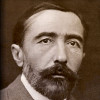“ The wise man is blessed in himself, and blessed also are the auditors who can hear and receive those words which flow from his mouth ”
Plutarch, Parallel Lives (c. 100 AD). copy citation
| Author | Plutarch |
|---|---|
| Source | Parallel Lives |
| Topic | words flow |
| Date | c. 100 AD |
| Language | English |
| Reference | |
| Note | Translated by A. H. Clough |
| Weblink | http://www.gutenberg.org/files/674/674-h/674-h.htm |
Context
“Either fear of the gods that were thought to watch over him, or reverence for his virtue, or a divine felicity of fortune that in his days preserved human innocence, made his reign, by whatever means, a living example and verification of that saying which Plato, long afterwards, ventured to pronounce, that the sole and only hope of respite or remedy for human evils was in some happy conjunction of events, which should unite in a single person the power of a king and the wisdom of a philosopher, so as to elevate virtue to control and mastery over vice. The wise man is blessed in himself, and blessed also are the auditors who can hear and receive those words which flow from his mouth; and perhaps, too, there is no need of compulsion or menaces to affect the multitude, for the mere sight itself of a shining and conspicuous example of virtue in the life of their prince will bring them spontaneously to virtue, and to a conformity with that blameless and blessed life of good will and mutual concord, supported by temperance and justice, which is the highest benefit that human means can confer;”
source


